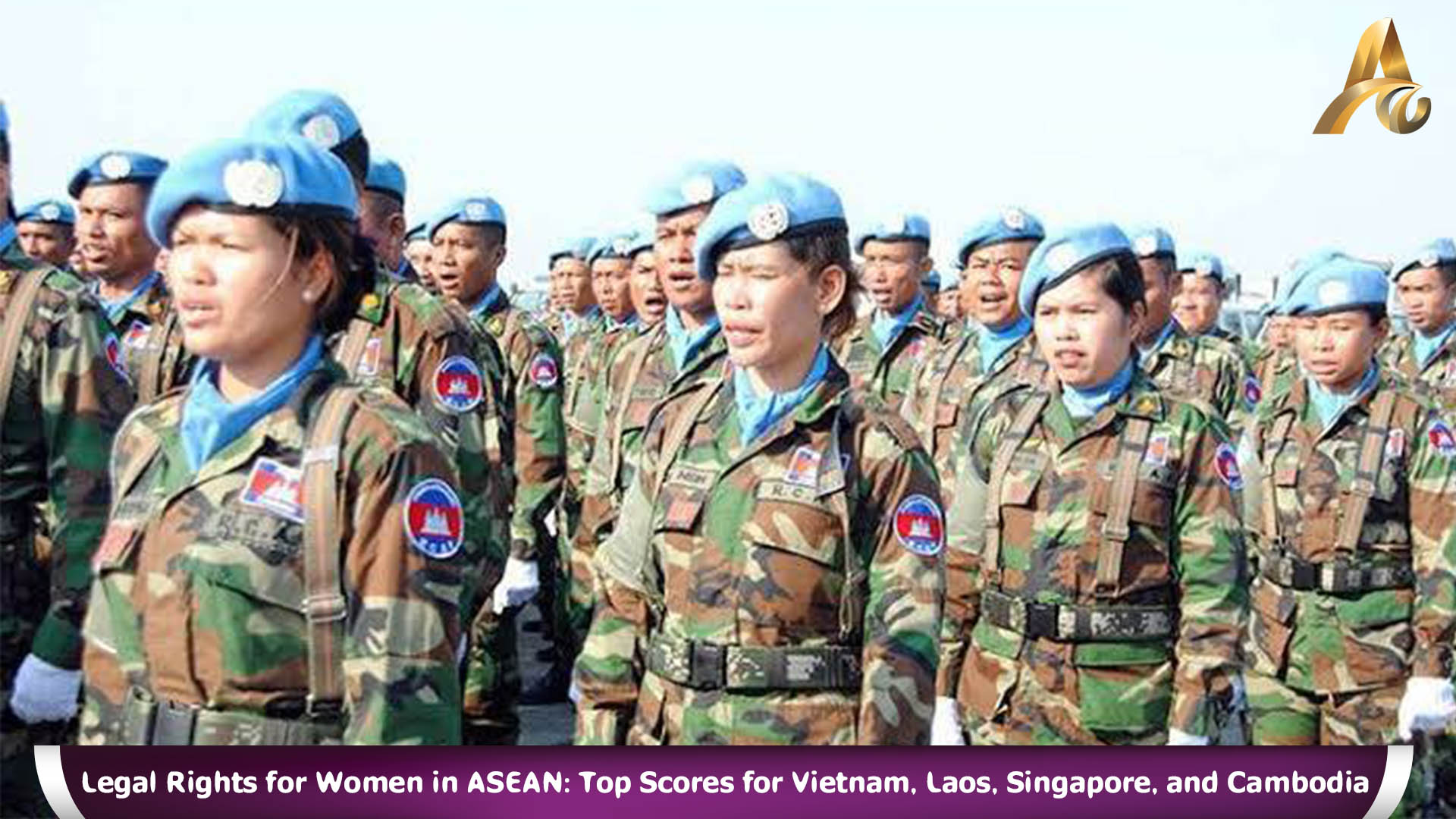Phnom Penh: In its latest annual report, the World Bank has identified Vietnam, Laos, Singapore, and Cambodia as the frontrunners within the Association of Southeast Asian Nations (ASEAN) in terms of legal protections afforded to women. The "Women, Business and the Law" report, which was unveiled in Washington on Monday, casts a spotlight on the legal rights of women across the globe, with a special focus on the Asia-Pacific region.
According to the report, among the 25 economies evaluated in the Asia-Pacific, only nine have succeeded in granting women 80 percent or more of the legal rights attributed to men. Leading the pack are Hong Kong (91.9 percent) and Taiwan (91.3 percent), with Mongolia (90.6 percent), South Korea, and Vietnam (both 88.1 percent) closely following. Timor-Leste (86.3 percent), Laos (85.6 percent), Singapore (82.5 percent), and Cambodia (81.3 percent) also make the list, showcasing better legal rights for women than countries like the Philippines (78.8 percent) and Thailand (78.1 percent), which are on par with Japan and mainland China respectively.
The report notes that apart from Laos and Malaysia, ASEAN member scores remained consistent with the previous year, with Laos experiencing a slight decline from 88.1 percent in 2023 due to new data, and Malaysia showing improvement from 50.0 percent following reforms in four key areas.
This year's analysis introduces new indicators: safety from violence and access to childcare services. These additions, alongside the original eight indicators—covering mobility, the workplace, pay, marriage, parenthood, entrepreneurship, assets, and pensions—paint a more comprehensive picture of the legal landscape for women.
However, the inclusion of safety and childcare indicators significantly lowers the global average score for women's legal rights from 77.1 percent to 62.2 percent, with the Asia-Pacific region averaging even lower at 57.8 percent. The World Bank emphasizes that deficiencies in laws related to safety and childcare discourage women from participating in the global workforce.
Interestingly, when these new indicators are factored in, the landscape shifts, with Vietnam and Laos still leading among ASEAN members, but with the Philippines surpassing Cambodia for third place, followed by Singapore.
The report also extends its analysis beyond legal frameworks to examine the implementation of laws affecting women, introducing "supportive frameworks" as a new set of scores. Singapore tops ASEAN countries in this regard, with the Philippines coming in second.
The stark "implementation gap" highlighted by the World Bank underscores a global challenge: the actualization of legal rights into practical outcomes for women. The report suggests that closing this gap could significantly boost the global economy, yet reforms are advancing at a sluggish pace.
In a commendable achievement, Cambodia, alongside a select few countries, received perfect scores in several categories, demonstrating its commitment to advancing legal rights for women in various spheres of life. However, the report calls for continued efforts across all fronts to ensure that legal reforms translate into tangible improvements for women worldwide.























